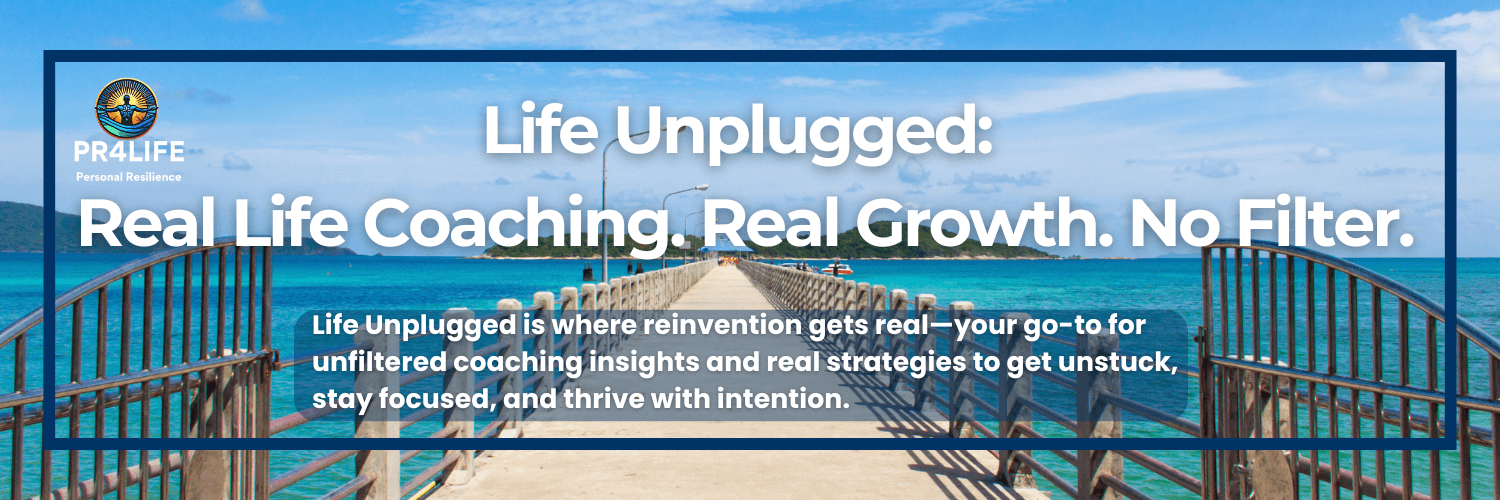
We’re eight days into 2026, and I’ve been busy. But busy isn’t the same as intentional living. If you’ve been searching for how to stop being busy, this is the reset.
This post breaks down the real cost of busyness, why it drains clarity and follow-through, and how it quietly replaces progress with the appearance of productivity. The goal isn’t to do less. It’s to do less that doesn’t matter.
I’m also sharing the PR4LIFE Daily 5 (ALIGN), a simple set of daily habits for intentional living. Same five prompts every day, because transformation comes from repetition, not novelty. If you’re ready to live on purpose and build real momentum, start here.

From global conflict to political upheaval and climate-driven disasters, 2025 tested a lot of people, so here’s a special year-end post to help you begin again with direction in 2026.
I entered 2025 with a plan. I’m ending it with a lesson.
Some of what I expected didn’t happen. Some doors stayed closed. Some timelines got pushed back. And there were stretches where showing up felt less like confidence and more like grit.
That’s why Philippians 3:12–14 became more than a verse for me. It became an anchor. Not because life suddenly got easier, but because it reminded me how to move when everything feels uncertain: don’t live behind you, don’t get stuck trying to “make it make sense,” and don’t confuse delay with defeat.
Release what’s behind. Regain clarity. Keep pressing forward with purpose.
Read more...
You can do all the inner work—reflect, journal, clarify your goals—but if your environment doesn’t support your next season, progress will always feel like a grind.
That’s what I realized this year.
I wasn’t stalling because I lacked discipline.
I was stalling because the systems around me were built for a version of me that no longer exists.
If your calendar, your routines, your circle—even your physical space—are still shaped by old patterns or survival mode, then of course you feel stuck. That structure is reinforcing the very identity you’re trying to outgrow.
So instead of trying harder, I made a different move:
I rebuilt my environment to match who I’ve become.
In this new post, I’m breaking down the exact mindset shift and structural changes that made the difference:
You’ll learn:
- Why “more effort” doesn’t lead to sustainable change—and what does
- What your environment actually is (hint: it’s more than your space)
- 5 powerful shifts that help your clarity become a lived experience
- The one question to ask before you set your 2026 goals
This one is foundational. Because clarity without structure will always collapse under pressure.
Read more...
Feeling stretched thin at the end of the year? You’re not alone—and the solution isn’t more plans, more pressure, or another overhaul. This post offers a clear path to realignment by helping you release the mental clutter and commit to one grounded habit, one meaningful win, and one courageous move.
Rooted in identity-based coaching, this reset strategy helps you break the cycle of burnout and overload by simplifying how you move forward. Learn how clarity, not complexity, fuels progress—so you can finish strong and start 2026 in alignment with who you’re becoming.
Read more...
We don’t stay stuck because we lack discipline—we stay stuck because we never stop to name what’s really in the way. This post gets brutally honest about self-sabotage, identity blocks, and the quiet patterns that keep you circling the same goals. If you’re tired of prepping instead of progressing, read this before 2026 shows up.
Read more...



